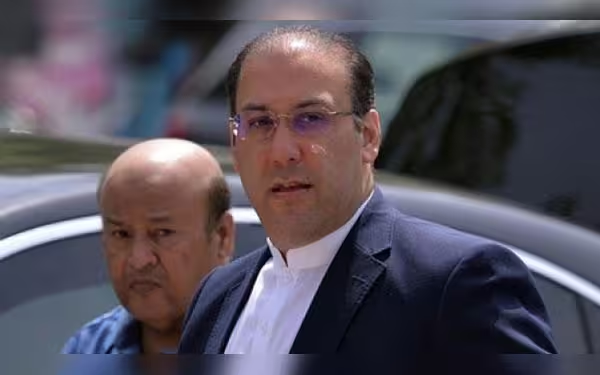Monday, December 23, 2024 03:36 PM
Hasan Nawaz Sharif Declared Bankrupt by London High Court
- London High Court declares Hasan Nawaz Sharif bankrupt.
- Bankruptcy highlights financial accountability among political leaders.
- Implications for Sharif family's reputation in Pakistan.
 Image Credits: thenews.com.pk
Image Credits: thenews.com.pkLondon High Court declares Hasan Nawaz Sharif bankrupt, raising questions about financial accountability among political leaders in Pakistan.
In a significant development, the London High Court has declared Hasan Nawaz Sharif, the son of former Prime Minister Nawaz Sharif, bankrupt. This ruling comes as part of the legal proceedings surrounding personal insolvency in the United Kingdom. Bankruptcy is a serious matter, and it indicates that an individual is unable to pay their debts. In the UK, when a bankruptcy order is issued, it is a formal declaration that the person cannot meet their financial obligations.
According to UK laws, a bankruptcy order is a crucial part of the personal insolvency process. It is important to note that these orders are only published in the London Gazette when they are received from The Insolvency Service. This means that the public can be informed about the financial status of individuals who have been declared bankrupt. The publication serves as a formal notice and is a part of the transparency that the legal system aims to uphold.
This ruling has raised eyebrows and sparked discussions about the financial dealings of prominent political figures in Pakistan. Hasan Nawaz Sharif's bankruptcy could have implications not only for his personal finances but also for the reputation of the Sharif family, which has been a significant player in Pakistani politics for decades. The Sharif family has faced various legal challenges in the past, and this latest development adds another layer to their ongoing saga.
For many, the news of Hasan Nawaz Sharif's bankruptcy serves as a reminder of the importance of financial responsibility. It highlights how even those in powerful positions can face dire financial consequences. This situation also raises questions about the financial practices of public figures and the need for accountability in managing wealth.
The declaration of bankruptcy for Hasan Nawaz Sharif is not just a personal matter; it reflects broader issues of financial management and accountability among political leaders. As the story unfolds, it will be interesting to see how this impacts the Sharif family's political future and what lessons can be learned about financial prudence in the public eye.













